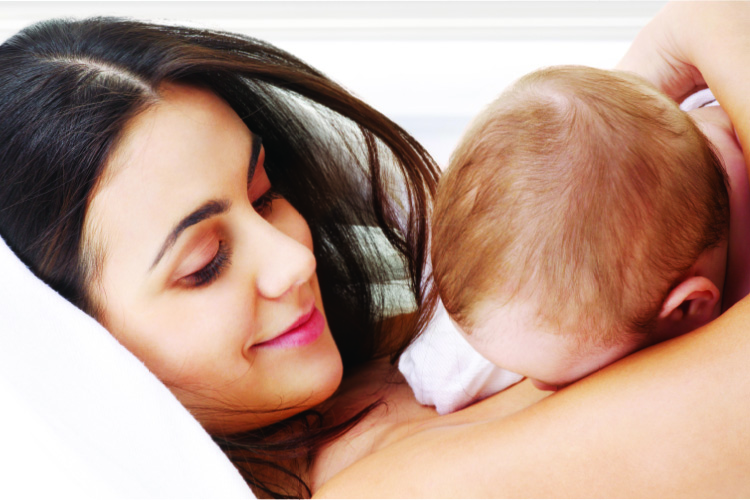Do you need to stop breastfeeding when you are pregnant? Lactation experts say no. You just need to know how to do it right. Here are a few tips to help you along.
It’s great news now that you are expecting your second child. You are excited that your toddler will soon have a little brother or sister. However, your little one is still breastfeeding and you want to continue to do so.
Doctors and lactation experts advise that it is completely possible to breastfeed while you are pregnant and also once the baby is born. According to the Breastfeeding Answer Book, “there is no documented danger to mother or foetus when mothers breastfeed during a healthy pregnancy.”
Subsequently in a 1993 study titled “Breastfeeding During Pregnancy” conducted by Moscone and Moore and reported in the Journal of Human Lactation found that, “breastfeeding does not appear to adversely affect the course of pregnancy.” So relax and enjoy nursing while pregnant! In fact many women go on to nurse both their newborn and toddler together. These suggestions and tips will show you how to get it right.
Generally it is not a problem to breastfeed during pregnancy – but always check with your doctor or healthcare provider if you are fit to do so. Doctors usually advise women against it if they have had premature births caused by early cervix dilation, signs of premature labour during this pregnancy, or unusual bleeding. According to experts, it’s the contractions of the uterus that breastfeeding causes that may be a problem in these instances. If you do not suffer from these conditions, it’s typically safe to breastfeed during pregnancy. However you will need to consider how breastfeeding is fitting in with your needs for rest, adequate pregnancy weight gain, and your overall sense of well-being.
- Keep yourself hydrated and have a healthy diet. To produce sufficient milk (for two, once the baby comes), you will need a lot of extra water and calories. Other than helping with your supply, water and nutrition also help to fend off morning sickness. Also remember to take your vitamins.
- Some women experience more frequent bouts of morning sickness when they are nursing as nausea caused by the let-down of the milk may happen, especially on an empty stomach. If this happens to you, light snacks may help to alleviate the discomfort. For instance, have a few pieces of dry crackers or toast before breastfeeding your toddler – this helps to ease any nausea. In severe cases, complete weaning may sometimes be the best way to deal with the nausea.
- Hormonal changes are common during pregnancy – and sometimes it affects the nipples, causing them to be sore. In instances like these, keep your feedings short. Also make sure your toddler latches well, as poor latching makes sore nipples worse. On the other hand, since feedings are shorter now, remember to take care of your toddler’s diet. Ensure he is getting the nutrients that he needs.
- Another challenge is feeling fatigue, which is a normal factor of all pregnancies. This may cause you to feel more reluctant to breastfeed – you may think it is a physically draining activity. According to experts from La Leche League International, there’s nothing inherently draining about breastfeeding, and having to sit down (or lie down) to nurse is actually a good way of ensuring you get to rest.
DID YOU KNOW?
While breastfeeding stimulates uterine contractions, these pose no risk to the unborn baby and in most cases do not increase the risk of having a miscarriage, or of going into premature labour. This is because the amount of oxytocin normally released during breastfeeding (the hormone that also stimulates labour) is not usually enough to cause the cervix to open before it is ready to do so.
REMINDER…
Nursing during pregnancy will not deprive the foetus of essential nutrients, and will not create a harmful “drain” on the mother’s body. A well-nourished mother should have no problem providing enough nutrients for both her unborn baby and her nursing child.
















